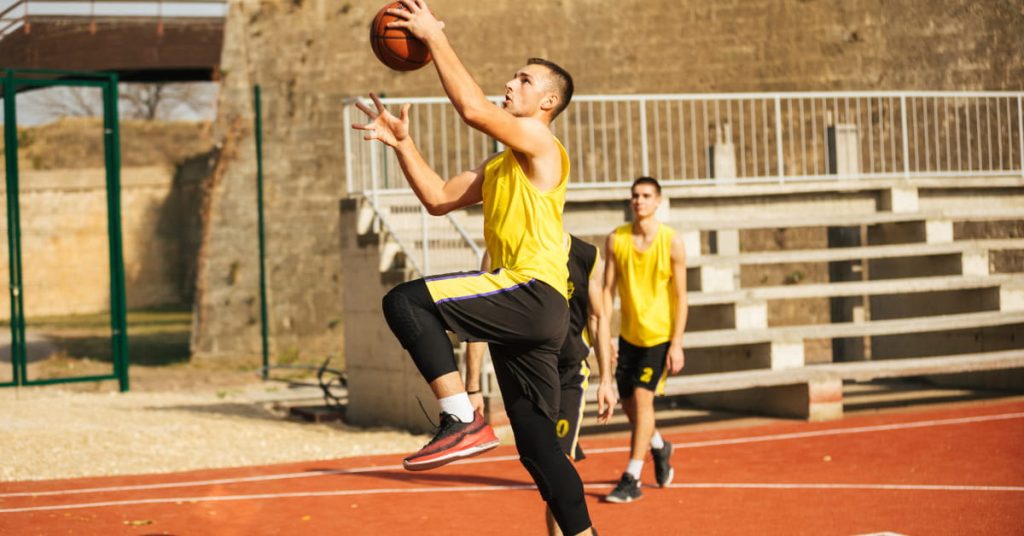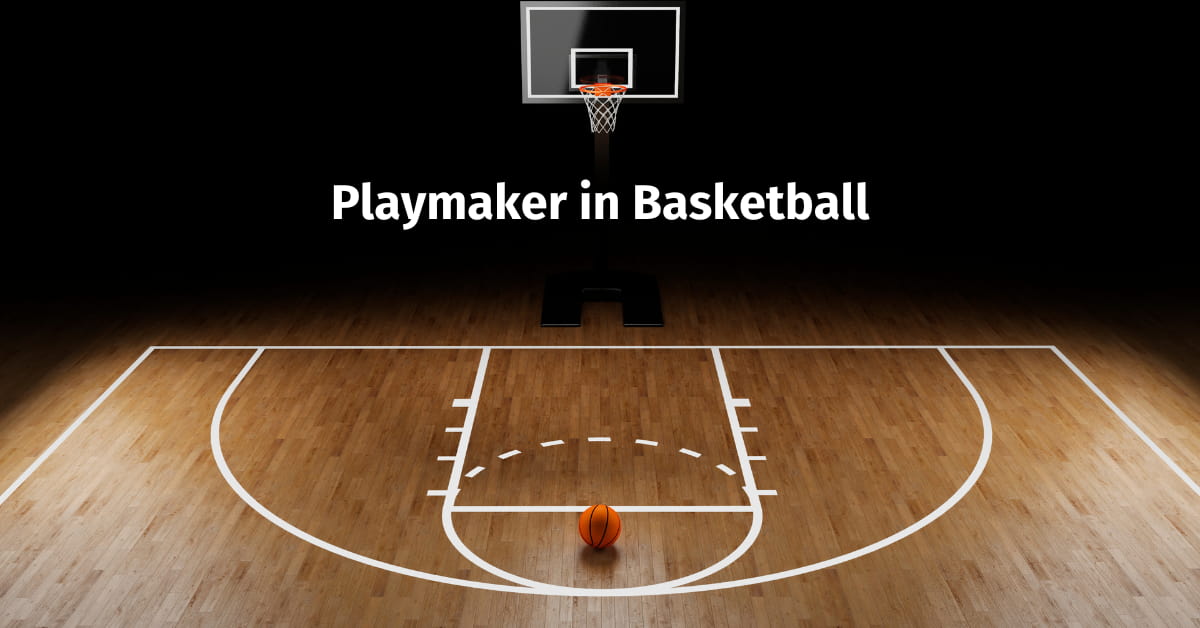What Is a Playmaker in Basketball?
Basketball is an exhilarating sport that combines athleticism, skill, and strategy. Certain players possess a unique ability within the game to orchestrate plays, set up teammates, and control the game’s flow. These players are known as playmakers and play a pivotal role in their team’s success. In this article, We’ll go deeply into what it means to be a basketball playmaker, exploring their characteristics, responsibilities, and impact on the game.
What Is a Playmaker in Basketball?
A playmaker in basketball is a player who possesses exceptional court vision, decision-making abilities, and passing skills. They act as the catalyst for their team’s offense, utilizing their creativity and strategic thinking to create scoring opportunities for their teammates. Playmakers keenly understand the game, anticipating and exploiting defensive weaknesses to generate advantageous situations.
The Role of a Playmaker
As the name suggests, playmakers are responsible for making plays happen on the basketball court. They are the primary initiators of the offense, directing the game’s flow and orchestrating their team’s scoring opportunities. Playmakers possess excellent ball-handling skills and are adept at breaking down defenses with their dribbling ability. They create opportunities for their teammates through accurate and timely passes, setting up high-percentage scoring chances.

Skills of a Playmaker
To excel as a playmaker, several essential skills are required. These skills include:
- Court Vision: Playmakers can see the entire court and anticipate openings in the defense. They possess a basketball IQ that allows them to make split-second decisions and deliver accurate passes to their teammates.
- Passing Accuracy: A playmaker must have exceptional passing skills, delivering the ball precisely and quickly to their teammates. They can make both simple and complex passes, adapting their delivery to the specific situation.
- Ball-Handling: Playmakers need excellent ball-handling skills to navigate through defenses, break down opponents one-on-one, and create opportunities for themselves and their teammates. Their dribbling ability allows them to penetrate the defense and draw multiple defenders, opening up passing lanes.
- Leadership: Playmakers are natural leaders on the court, commanding their team’s offense and motivating their teammates. They possess strong communication skills, ensuring everyone is in the correct position and executing plays effectively.
- Shooting Threat: While playmakers are known for their passing prowess, they must also be a threat as scorers themselves. The ability to shoot from outside forces defenders to guard them closely, creating additional passing lanes for their teammates.
- Basketball IQ: Playmakers possess a deep understanding of the game, including offensive and defensive strategies, player tendencies, and situational awareness. They can read the game and exploit weaknesses in the defense to create scoring opportunities.
Examples of Great Playmakers
Throughout basketball history, numerous exceptional playmakers have left an indelible mark on the game. Let’s look at a couple famous playmakers
Magic Johnson
Magic Johnson is widely regarded as one of the greatest playmakers in basketball history. Standing at 6’9″, his size and court vision were unparalleled. Johnson’s ability to thread pinpoint passes through tight spaces and create scoring opportunities for his teammates propelled the Los Angeles Lakers to multiple NBA championships.
Jason Kidd
Jason Kidd was a masterful playmaker known for his exceptional court vision and passing ability. He possessed an uncanny ability to make his teammates better and consistently orchestrated the offense with his precise passes. Kidd’s leadership and basketball IQ were instrumental in leading the New Jersey Nets to two consecutive NBA Finals appearances.
Chris Paul
Chris Paul, often called CP3, is renowned for his basketball IQ and ability to control the game. His exceptional passing skills and court vision have consistently made him one of the league’s top playmakers. Paul’s leadership and ability to create scoring opportunities for his teammates have earned him multiple All-Star selections and a reputation as one of the game’s premier playmakers.

How Playmakers Influence the Game?
Playmakers significantly impact the game, influencing the flow of play and creating scoring opportunities for their team. Here are some ways in which playmakers make their mark:
- Play Creation: Playmakers excel at creating plays, using their court vision and passing skills to set up their teammates for scoring opportunities. They analyze the defense, exploit weaknesses, and deliver accurate passes to create open shots.
- Game Management: Playmakers are adept at managing the game, controlling the tempo, and dictating the team’s offensive strategies. They make critical decisions on when to push the pace, slow it down, or call specific plays based on the situation.
- Leadership and Communication: Playmakers are the on-court leaders, directing their teammates and ensuring everyone is on the same page. Their communication skills are vital in orchestrating the offense effectively and maximizing their team’s scoring potential.
- Drawing Defensive Attention: Skilled playmakers draw significant defensive attention, forcing opponents to double-team or focus their defensive efforts on stopping them. This creates opportunities for their teammates to capitalize on the resulting open spaces.
- Unselfish Play: Playmakers prioritize team success over personal achievements. They are willing to make the extra pass and create scoring opportunities for their teammates, even if it means sacrificing their own shot attempts.
FAQs about Playmakers
What is a playmaker’s main responsibility in basketball?
The primary role of a playmaker in basketball is to create number of scoring opportunities for their teammates by utilizing their court vision, passing skills, and strategic thinking. They act as the catalyst for their team’s offense, directing the game’s flow and setting up plays.
Can any player become a playmaker?
While certain players naturally possess the attributes required to be a playmaker, the skills can be developed through practice, experience, and basketball IQ. However, only some players can become an elite playmaker, requiring a unique combination of physical and mental abilities.
Are playmakers only responsible for setting up plays?
No, playmakers have a multi-faceted role in the game. While setting up plays and creating scoring opportunities is a primary responsibility, playmakers also contribute to the team’s defense, leadership, and overall game management.
Do playmakers have to be the team’s point guard?
Although point guards commonly take on the playmaker role due to their ball-handling and court vision, playmakers can emerge from other positions as well. Players in positions like shooting guard or small forward can also possess playmaking abilities and significantly impact the game.
How can a player improve their playmaking skills?
Players looking to improve their playmaking skills should focus on developing their court vision, passing accuracy, and basketball IQ. Engaging in drills that enhance decision-making under pressure and studying the game to understand offensive and defensive strategies can also contribute to improvement.
Can a playmaker also be a prolific scorer?
Yes, some playmakers can be prolific scorers themselves. While their primary focus is creating opportunities for their teammates, playmakers with strong shooting skills can also score effectively when needed, adding an additional dimension to their game.
Conclusion
Playmakers are the master strategists of basketball, possessing exceptional court vision, passing skills, and basketball IQ. Their ability to create scoring opportunities, control the game’s tempo, and lead their team to victory is invaluable.
Understanding the role and impact of playmakers provides a deeper appreciation for their contributions to the game. So, the next time you watch a basketball game, keep an eye out for the playmakers who make the magic happen on the court.








